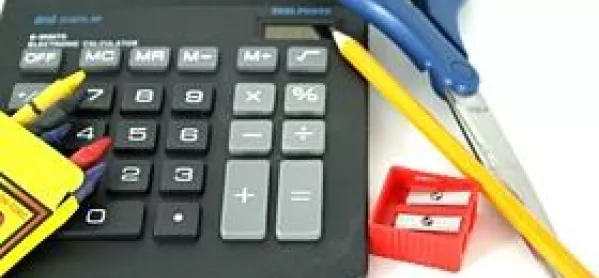Calculator ban does not compute, say experts

The announcement from the government last week that it intends to ban calculators from primary school maths tests may have pleased traditionalists. But the plan, due to be implemented in 2014, has been met with bemusement by experts.
Elizabeth Truss, installed as an education minister in the September reshuffle, said she wanted calculators to be banished from exams taken by 11-year-olds because they bred a reliance on technology to complete basic sums. Instead children will have to rely on a pen, paper and mental arithmetic.
The move has been challenged by National Numeracy, the organisation established to promote maths to the public. Chief executive Mike Ellicock believes pupils should master the basics before using calculators, but said that is already the case in most primary schools. Banning calculators risked turning children off maths, he added.
“Some of the underachievement in maths has to be down to attitudes associated with the perceived lack of relevance,” said Mr Ellicock. “So why remove the bit of the key stage 2 test that gives the opportunity to ask more interesting questions? These are questions where the calculations may be boring and time-consuming, so use the calculator, but the maths is interesting.”
Rob Eastaway, a former president of the Mathematical Association and author of book Maths for Mums and Dads, said calculator use in primary schools was not widespread and that Ms Truss was focusing on the wrong issue. “I’m fairly relaxed about the notion of not testing children’s calculator ability formally, but I would worry if they (calculators) were not on the curriculum at all,” he said. “That would be silly. A good teacher knows when it is sensible to use a calculator and when not.”
Jane Imrie, deputy director of the National Centre for Excellence in the Teaching of Mathematics, also said teachers knew when it was appropriate to use technology. “There is evidence to show that classroom practice is driven by what is in the tests, so I think there is logic in saying we won’t allow them (calculators) in the test,” she said. “But I haven’t yet seen a primary school where children use calculators when they are supposed to be doing basic number facts.”
The government has said that 10-year-olds in England are among the highest users of calculators in the world, pointing to the 2007 Trends in International Mathematics and Science Study (TIMSS), which found that 98 per cent of pupils were allowed to use them in class. But when asked how often calculators were actually used, just 12 per cent of teachers said pupils used a calculator in most lessons to solve complex problems.
Since TIMSS 2007, Singapore - lauded by the government for its high educational standards and academic rigour - has introduced calculators for upper primary pupils and has a calculator paper on its primary school leaving exam.
The government published a draft primary curriculum for maths in the summer, which said calculators should not be used until the end of primary school, and then only for pupils who were secure in written and mental arithmetic. The current KS2 curriculum tells teachers to deliver activities that encourage children to decide when the use of calculators is appropriate. Use of calculators is suggested from Year 4 onwards.
Dr Sue Pope, chair of the Association of Teachers of Mathematics General Council, said she was “dismayed” by the move to ban calculators, because of the pressure to teach to the test. “Saying no calculators in the assessment means teachers will just not use them in primary schools,” she added.
Push the button
Three examples of KS2 maths questions that allow a calculator: 1. Tickets for a school play cost pound;2.75 each. Dev sold 23 tickets. How much money did Dev collect? 2. Holly collected pound;77 from selling tickets. How many tickets did she sell? 3. Dev has a bag of 50p coins and Holly has a bag of 20p coins. Both bags contain the same amount of money. Dev’s bag contains thirty 50p coins. How many 20p coins are in Holly’s bag? Answers 1. pound;63.25 2. 28 tickets 3. 75 (one mark for the answer, one mark for showing working).
Keep reading for just £1 per month
You've reached your limit of free articles this month. Subscribe for £1 per month for three months and get:
- Unlimited access to all Tes magazine content
- Exclusive subscriber-only stories
- Award-winning email newsletters



